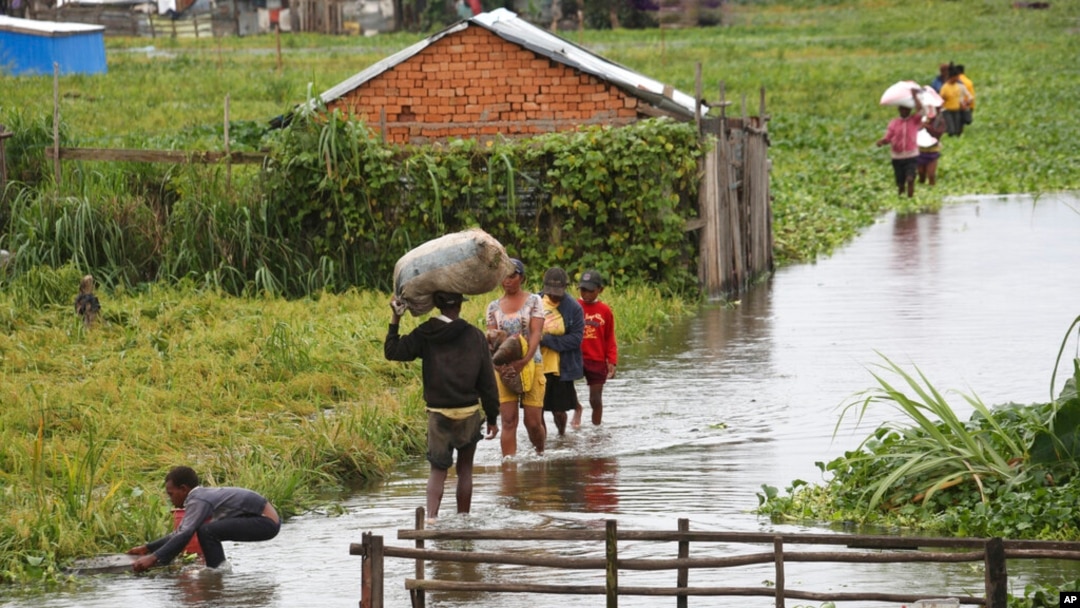COP27 officials urged governments to keep up efforts to combat climate change despite soaring inflation, the energy crunch linked to Russia's war on Ukraine and the persistent Covid-19 pandemic.
"The fear is other priorities take precedence," top United Nations climate change official Simon Stiell told a news conference.
The "fear is that we lose another day, another week, another month, another year -- because we can't," he said.
The world must slash greenhouse emissions by 45 percent by 2030 to cap global warming at 1.5 degrees Celsius above late-19th-century levels.
But current trends would see carbon pollution increase 10 percent by the end of the decade and Earth's surface heat up 2.8C, according to findings unveiled in recent days.
Only 29 of 194 countries have presented improved climate plans, as called for at the UN talks in Glasgow last year, Stiell noted.
Humanity must "cooperate or perish" in the face of accelerating climate change impacts, UN chief Antonio Guterres told world leaders Monday at talks in Egypt tasked with curbing global warming.
Guterres called for a "historic" deal between rich countries and emerging economies that would aim to reduce emissions and keep the temperature rise to the more ambitions Paris Agreement target of 1.5 degrees Celsius above the pre-industrial era.
He said the target should be to provide renewable and affordable energy for all, calling on the top emitters, the United States and China, in particular to step up their efforts.
Guterres said humanity faces a stark choice.
"Cooperate or perish," he said. "It is either a Climate Solidarity Pact, or a Collective Suicide Pact."
"Surging energy prices have highlighted just how reliant we are on fossil fuels and how vulnerable this makes us," Lagarde said.
Switching to renewable energy sources, such as wind or solar, would lead to "lower and more stable inflation rates" and "make our economies work better", she said.
French President Emmanuel Macron urged the United States, China and other non-European rich nations to "step up" their efforts to cut emissions and provide financial aid to other countries.
"Europeans are paying," Macron told French and African climate campaigners on the sidelines of COP27. "We are the only ones paying."
On Sunday, the heads of developing nations won a small victory when delegates agreed to put the controversial issue of money for "loss and damage" on the summit agenda.
Pakistan, which chairs the powerful G77+China negotiating bloc of more than 130 developing nations, has made the issue a priority.
"We definitely regard this as a success for the parties," said Egypt's Sameh Shoukry, who chairs the COP27.
The United States and the European Union have dragged their feet on the issue for years, fearing it would create an open-ended reparations framework.
But European Commission Vice President Frans Timmermans welcomed the inclusion of loss and damage, tweeting that the "climate crisis has impacts beyond what vulnerable countries can shoulder alone".
While nearly 100 heads of state and government came for the conference's two days of talks, Chinese leader Xi Jinping, whose country is the world's top emitter of greenhouse gases, is notably absent.
US President Joe Biden, whose country ranks second on the top-polluters list, will join COP27 later this week after U.S. midterm elections on Tuesday.
Climate activists snarled rush hour motorway traffic around London on Monday after climbing onto overhead gantries, despite police making pre-emptive arrests.
The Just Stop Oil group, which wants the UK government to halt new oil and gas extraction, said its members had blocked traffic in at least six locations on the M25 motorway, which encircles the British capital.
The latest demonstration comes as world leaders gather for the United Nations' COP27 climate summit in Egypt, where governments are under pressure to step up efforts to combat global heating.
Egyptian authorities, in hosting this year's global climate summit is being held, hope the gathering demonstrates "that Egypt is not an irrelevant country, that Egypt has the prowess, the diplomatic clout and the power, the security presence to be a pivotal figure", said Hafsa Halawa, a non-resident scholar at the Middle East Institute.
This report was prepared using data from Reuters and Agence France- Presse


